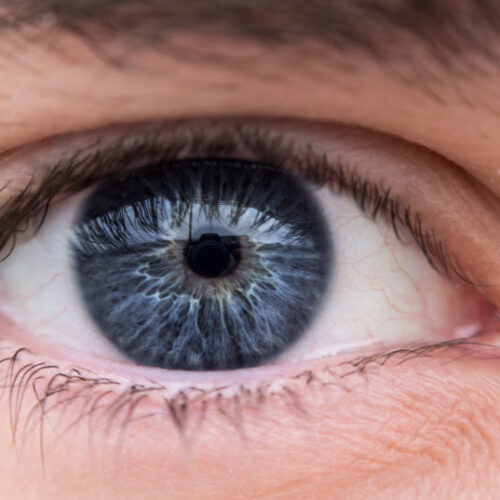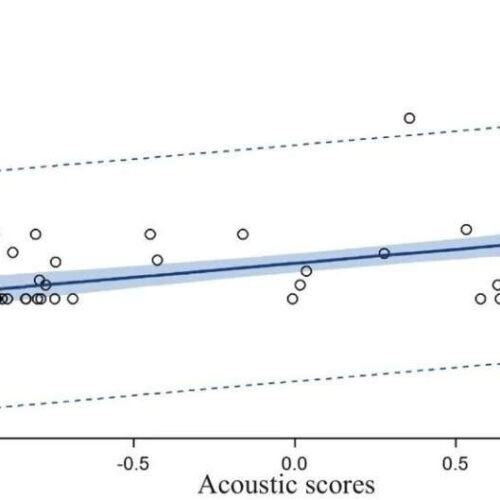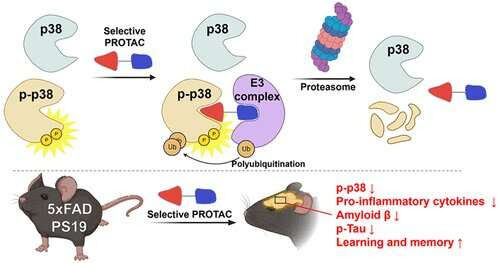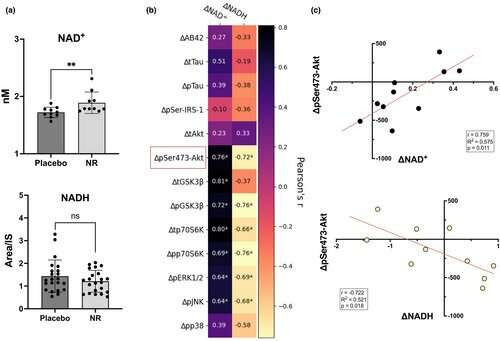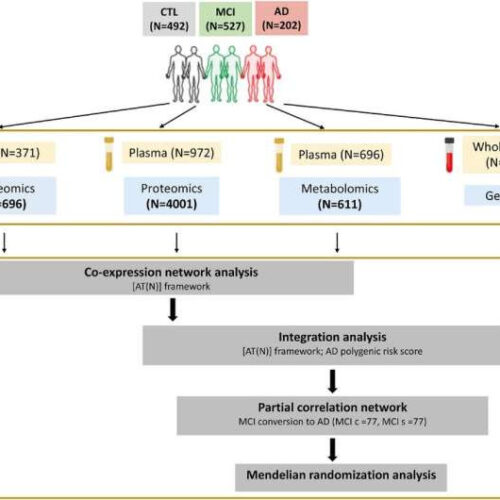by University of Pittsburgh Credit: Pixabay/CC0 Public Domain Why do some people develop Alzheimer’s disease while others don’t? And, even more puzzlingly, why do many individuals whose brains are chock-full of toxic amyloid aggregates—a telltale sign of Alzheimer’s brain pathology—never go on to develop Alzheimer’s-associated dementias? University of Pittsburgh School of Medicine researchers appear to have...
Tag: <span>Alzheimers</span>
Israeli researchers uncover indicator of accelerated cognitive decline in women with Alzheimer’s
By RENEE GHERT-ZAND 9 May 2023, 11:34 pm A team led by researchers at the Safra Center for Neuroscience and the Institute for Life Sciences at The Hebrew University of Jerusalem have uncovered a sex-specific molecular mechanism leading to more accelerated cognitive decline in women with Alzheimer’s disease than in men. Alzheimer’s, the leading cause of...
The first signs of Alzheimer’s appear in the eyes. Here’s what they are
By WALLA! Published: MAY 2, 2023 09:04 An illustrative image of an eye(photo credit: Wikimedia Commons) The eyes are more than a window to the soul; they’re also a reflection of a person’s cognitive health. “The eye is the window into the brain,” ophthalmologist Dr. Christine Greer, Director of Medical Education at the Institute of Neurodegenerative Diseases in...
AI can spot early signs of Alzheimer’s in speech patterns, study shows
by UT Southwestern Medical Center Association of baseline acoustic (panel A) and lexical-semantic (panel B) scores with the 2-year change of CDR-SOB (higher value indicates greater disease progression). X-axis is the derived digital biomarker score. Y-axis is the change in CDR-SOB over 2 years. Higher baseline acoustic score and lower lexical-semantic scores were associated with greater...
Non-drug interventions for patients with Alzheimer’s are both effective and cost-effective, study shows
by Brown University Credit: Pixabay/CC0 Public Domain While new drugs to treat Alzheimer’s disease tend to receive the most public attention, many well-researched ways to care for people with dementia don’t involve medication. A new evaluation compared the cost-effectiveness of four non-drug interventions to the usual care received by people with dementia and found that the...
Discovery of T cells’ role in Alzheimer’s, related diseases, suggests new treatment strategy
WASHINGTON UNIVERSITY SCHOOL OF MEDICINE Nearly two dozen experimental therapies targeting the immune system are in clinical trials for Alzheimer’s disease, a reflection of the growing recognition that immune processes play a key role in driving the brain damage that leads to confusion, memory loss and other debilitating symptoms. Many of the immunity-focused Alzheimer’s drugs...
Degrading modified proteins could treat Alzheimer’s, other ‘undruggable’ diseases
by American Chemical Society Graphical abstract. Credit: ACS Central Science (2023). DOI: 10.1021/acscentsci.2c01369 Certain diseases, including Alzheimer’s, are currently considered “undruggable” because traditional small molecule drugs can’t interfere with the proteins responsible for the illnesses. But a new technique that specifically targets and breaks apart certain proteins—rather than just interfering with them—may offer a pathway toward treatment....
Researchers link supplement to reduced biomarkers of Alzheimer’s in the brain
by University of Delaware NAD+ and NADH concentrations in NEVs and change–change correlations with insulin signaling proteins. (a) Concentration of NAD+ after 6 weeks of oral nicotinamide riboside (NR) supplementation was significantly higher in NEVs when compared to placebo (n = 10, p = 0.0092, paired ttest), while NADH remained relatively unchanged (n = 22, p = 0.215,...
Big data initiative discovers new causal pathways in Alzheimer’s
by King’s College London Flowchart of study design. CTL, cognitively normal controls; MCI, mild cognitive impairment; AD, Alzheimer’s disease; Aβ, β-amyloid; CSF, cerebrospinal fluid; A, amyloid pathology; T, tau pathology; N, neurodegeneration; PRS, polygenic risk score; MR, mendelian randomization. Credit: Alzheimer’s & Dementia (2023). DOI: 10.1002/alz.12961 A new study, published on Feb. 15 in Alzheimer’s & Dementia, analyzed...
Mysterious brain activity in mice watching a movie could help tackle Alzheimer’s, improve AI
UNIVERSITY OF CALIFORNIA – LOS ANGELES HEALTH SCIENCESPrintEmail App LOS ANGELES – Even the legendary filmmaker Orson Welles couldn’t have imagined such a plot twist. By showing Welles’s movie “Touch of Evil” to mice, Chinmay Purandare, PhD, and Prof. Mayank Mehta of UCLA have uncovered surprising and important new insights about how neurons form memories....

